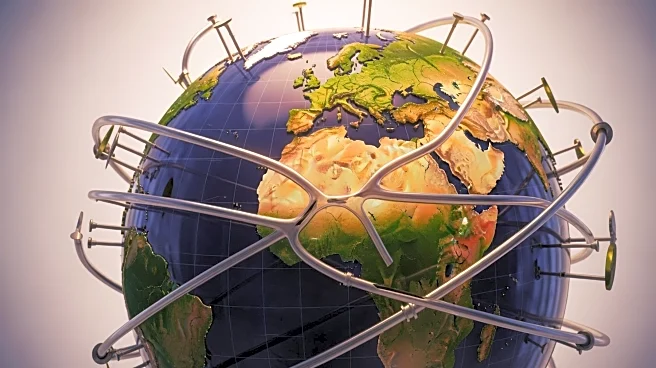What's Happening?
The U.S. government, under President Trump, has imposed significant sanctions on Russia's two largest oil companies, Rosneft and Lukoil. These sanctions are part of an effort to pressure Russia into ending its military actions in Ukraine. The sanctions,
announced by the U.S. Department of the Treasury's Office of Foreign Assets Control, effectively blacklist these companies, which are major contributors to Russia's oil exports. The move is seen as a direct intervention by the Trump administration to curb Russia's economic capabilities, as these companies account for a substantial portion of Russia's crude oil exports. The sanctions have already led to a rise in global oil prices, with Brent crude oil experiencing a 5% surge.
Why It's Important?
The sanctions are significant as they target a critical sector of the Russian economy, potentially impacting Russia's ability to finance its military operations. The move also signals a shift in U.S. foreign policy, as it directly challenges Russia's economic interests. The sanctions could lead to a realignment of global oil supply chains, as countries like China and India, major buyers of Russian oil, may need to seek alternative sources. This could increase their reliance on U.S. and OPEC oil supplies, potentially at higher costs. The sanctions also underscore the geopolitical tensions between the U.S. and Russia, with potential implications for global energy markets and international relations.
What's Next?
The immediate consequence of the sanctions is a potential increase in global oil prices, which could affect economies worldwide. Countries heavily reliant on Russian oil, such as China and India, may face economic challenges as they adjust their import strategies. The U.S. may also consider further actions, including secondary sanctions on entities that continue to engage with the sanctioned Russian companies. The effectiveness of these sanctions in achieving a ceasefire in Ukraine remains uncertain, but they represent a strategic effort by the U.S. to exert economic pressure on Russia.















